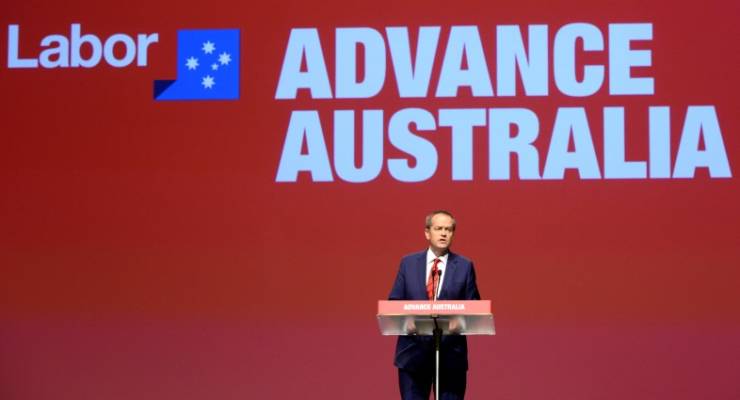
There is no reason to believe that the Labor Party will not win the election a few days from now.
However, there are a few things to bear in mind as we approach the final days, particularly as the swinging voters, the least involved members of the electorate, prepare to make their one and only decision of the campaign.
First, the ALP is on the right issues: healthcare, hospitals, restoring penalty rates, etc. Indeed, Shorten’s launch included a wonderful discussion (well presented) of perhaps 20 or more. But with the exception of a few references to “a fair go”, there wasn’t a simple, compelling overriding message.
This reminded me of 2005 when, following Labor’s fourth straight loss to Howard, I helped with the design of our first poll aimed at the upcoming 2007 federal election.
The electorate preferred the ALP on the overwhelming number of specific issues, but the Coalition was still winning — as it had won in the four previous elections. The problem today, as it was then, is that we are pushing too many issues for folks to absorb, particularly among the undecided swinging voters.
As a recent poll showed, over 45% of Australian voters told pollsters two weeks ago that they had followed the current federal campaign either “just a little” or “not at all”. All past data indicates that this includes a healthy bunch of the unengaged late-deciders who the ALP must reach to lock down this election.
The campaign for these critical voters for the final days of the campaign must be simple, vivid, and framed on our turf.
This means:
1. Even though Bill has closed much of the gap with Morrison on preferred PM — and may tempt the ALP to put more final emphasis on the leader — the simple fact is that the party is stronger than the leader. Although I have not seen the ALP internal polling, my past experience over the years suggests that reality is probably even greater among the less involved portion of the electorate.
2. Stay off of Liberal turf. Stop talking about the ALP producing big budget surpluses. No one except convinced ALP voters believe that one.
3. In fact, stay away from framing things in macro terms. It’s about individual working people and their families, not the size of the economy or the size of the budget deficit. Macro framing is generally Liberal turf.
4. Cool the “costings” amounts. Talk about the service — within the broad framework of our message — not the money. Link the service (better hospitals with more staff in your town, etc) to what that shows about the ALP being the party that cares about regular working families. Don’t expect these marginal (but absolutely critical) last-minute voters to automatically connect the dots the way politically sensitive folks do.
In the 2005-2007 campaign, the Liberals and then the media criticised the ALP and ACTU campaign for using “working families” ad nauseam. They were right. In some speeches, the media recorded its use more than 20 times. But we won the election, not only defeating the supposedly unbeatable, four-term Howard government, but even beating the prime minister in his own constituency. This is a a lesson for the ALP (and other progressive parties).
5. Establish a basic question for the final days and final vote choice: which party is more likely to be on your side when it comes to protecting your health? Which party will ensure you get treated decently in the workplace? Which party is more likely to stand up for regular working families in Australia, and not just the big corporations or the very rich?
If you frame the final choice in these kinds of terms, the ALP wins.
Period.
Vic Fingerhut is a veteran pollster and Democratic consultant who has previously worked with the Australian Labor Party.







Good luck to Harris now and for the future.
I would think that the Labs missed a major opportunity on another point.
I wondered why the strategists for Lab. didn’t pick up on Scommo saying ” if you vote for me you get me, if you vote for Shorten you get Shorten”.
A video of Scummo saying that followed by a voice saying ” and who else?’ in the background an all in brawl going on. Followed by Shorten saying “If you vote for me you get me, and Tanya, Penny, Albo etc. with pictures of them and all the UNITED team. Lab hasn’t pushed that disunity issue hard enough.
I agree with this. A party as divided as the Libs shouldn’t even be seriously competitive: “can’t govern themselves; can’t govern the country”. Menzies never let Labor get away with it.
ALP not necessarily on very solid ground here. Voters may remember 2010- 2013 a little too well for Labor to speak with sufficient authority – at least until they have a proven track record of unity in government.
Yeh ,stay away from the macro stuff like accelerating climate change …I guess the abstract individual working families live in a comfortable/uncomfortable bubble zone divorced from the realities of their own food chain …real salt of the earth stuff …but then again ,you generally salt the earth when you want to destroy it…
The Scomulator really thinks he likable ..
Vote Liberal and get Dutton. He has unfinished business.